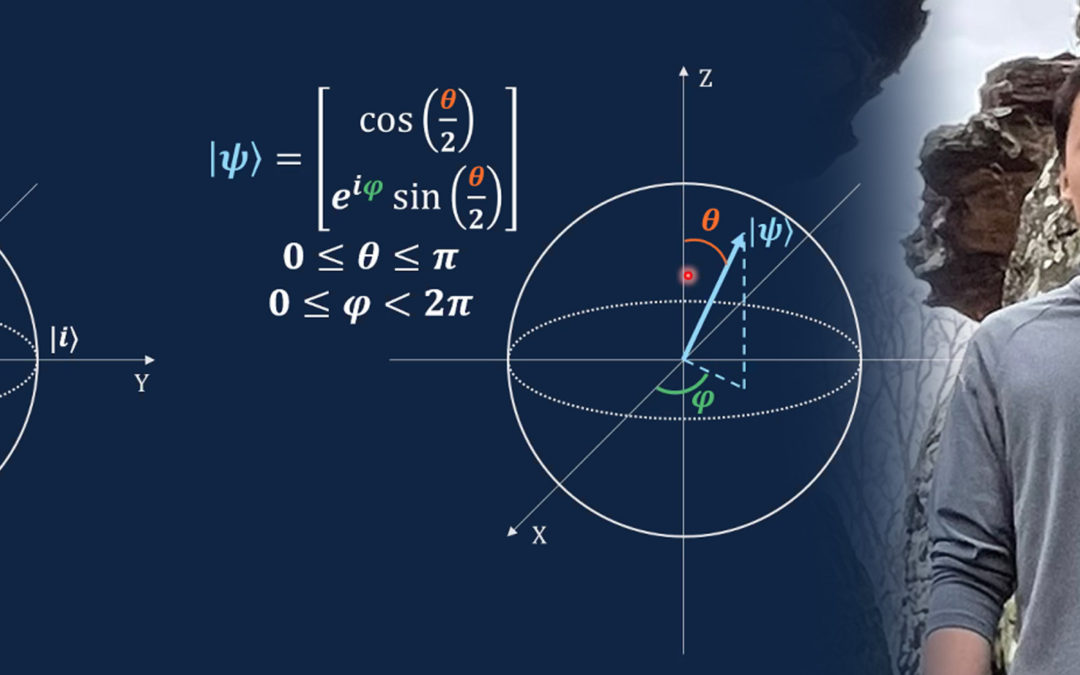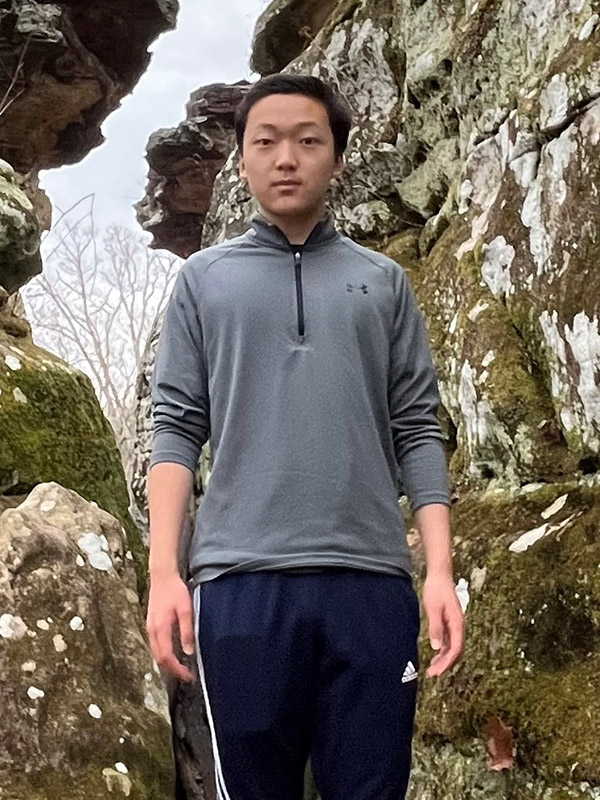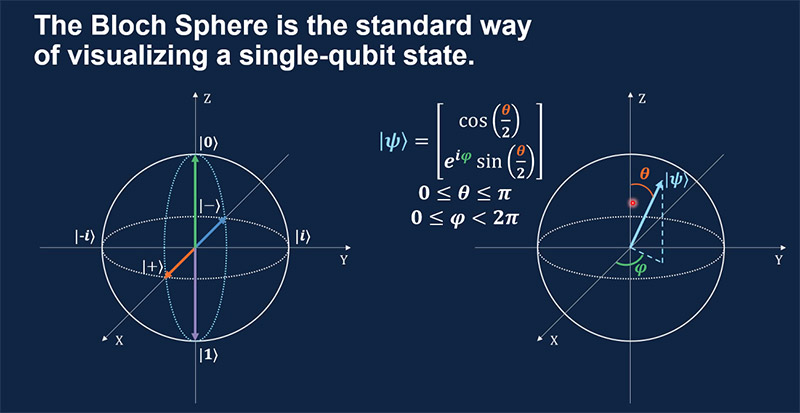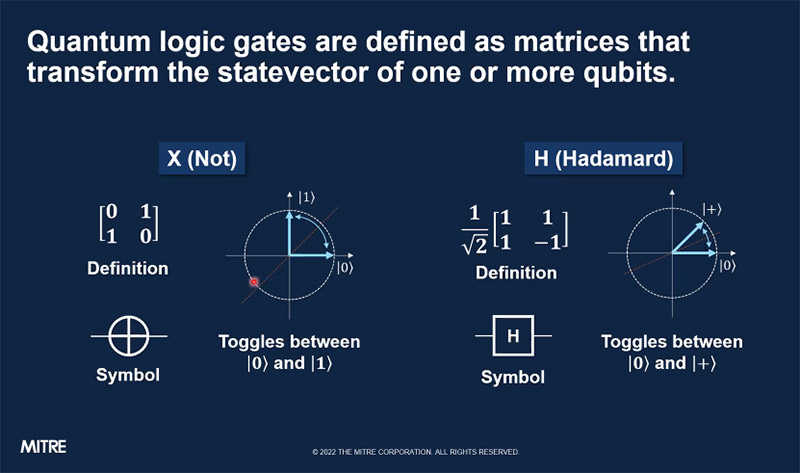Jason Qin reports on his experiences at the MIT BeaverWorks Summer Institute, where he is studying Quantum Software.
“I have learned so much within this first week of BWSI, specifically about the basics of Quantum Software and the associated mathematical foundation behind it. (I also found the Yale Linear Algebra summer course really helpful towards my understanding.) The instructor also provided time for us to dive into actual programming (with the language Q#), but with a focus on group work and collaboration,” Jason explains.
“The program would utilize Zoom breakout rooms to work through quantum software labs each day with a small group of 4 students. The Zoom meeting for classes is scheduled everyday from 9 AM to 4 PM CST, with breaks in between, and time after class to socialize with the other students in the Quantum Software program through Minecraft. Each day, there would also be a distinguished speaker from 11:30-12:30, who would speak about cutting edge engineering and computing topics: my favorite speaker talked about the implications of natural language processing with programs like GPT-3,” Jason adds.
“Overall, I found the first week of BWSI Quantum Software super engaging and enlightening yet challenging. I am able to put in the effort to work through the labs with my group and learn so much about the cutting-edge field of Quantum Software,” Jason says.
“The second week of BeaverWorks Summer Institute was very enlightening and exciting. I learned so much about quantum software throughout the first two weeks and am so glad for the opportunity to experience hands-on quantum software computer programs like Q-sharp. The first two weeks provided a rigorous introduction to quantum software, covering topics ranging from qubit properties and entanglement to intermediate quantum algorithms like Shor’s Algorithm. Each day I had the opportunity to work with my group of 3 other students on labs in Q-sharp and share with the rest of the class our specific solution. I always loved the fact that there are multiple ways to solve a problem, and I really enjoyed discussing with my peers and learning from their perspectives,” Jason reports.
“Additionally, the synchronous class times also sometimes featured guest lectures from experts in the field of quantum software, including the CEO of Quantum Thought and a current Computer Science professor at MIT. We also had the chance to hear a BWSI Quantum Software alumni talk about a continuation project after the course, which I found extremely encouraging,” Jason adds.
Jason reports that his third week at BWSI involved working on final class projects and exploring real quantum computing systems and simulations.
“At the beginning of the week, I had the chance to experiment with real simulations through IBM’s cloud based quantum computing systems. We learned a new Quantum Software programming language called Qiskit, which allows for so many real world uses of the algorithms and principles we learned in the first two weeks. My group chose the Variational Quantum Eigensolver algorithm to implement and explore in our final project, as it has applications in chemistry and modeling molecule interactions. I found it so rewarding that all of the prior work and knowledge learned throughout this course could be used for this real world project that I can work on with my team. I am looking forward to the final week and presentations of the project,” Jason says.
In the final week of his course at BWSI, Jason and his team presented their class project — the Variational Quantum Eigensolver. The team project was awarded best video for the Quantum Software course. (See video at right)
“The final project of the course challenged teams to explore a real world quantum algorithm and implement it using the fundamentals of quantum software learned throughout the course. For this project, I had the wonderful chance to explore the Variational Quantum Eigensolver, an algorithm with both classical and quantum parts that can be used to calculate the ground state energy of a molecule with wide applications to medical chemistry and theoretical physics, with my group,” Jason reports.
“Throughout the course, there were also multiple professionals in the quantum computing field as guest lecturers, including multiple CEOs of quantum computing startups, researchers from MITRE, and professors from MIT. Through these talks, I learned a lot about the current state of quantum computers and future aspirations of the community, as well as how I can get involved in this new and exciting field. I also realized just how small and new the quantum software field is, especially when my group met one of the creators of a library we were using in our program,” Jason adds.
“I am so grateful to the Garwin Family Foundation for expanding my horizons and sponsoring me to attend all of these amazing programs throughout my high school experience (AwesomeMath, Yale Summer Session, and MIT BWSI). ,” Jason exclaims!
Great work, Jason! We wish you much success in your future studies of math and the quantum software field.
>> Read Jason Qin’s final report (PDF file, 71 KB).
>> Learn about other students’ experiences in the GFF Scholarship Program.




